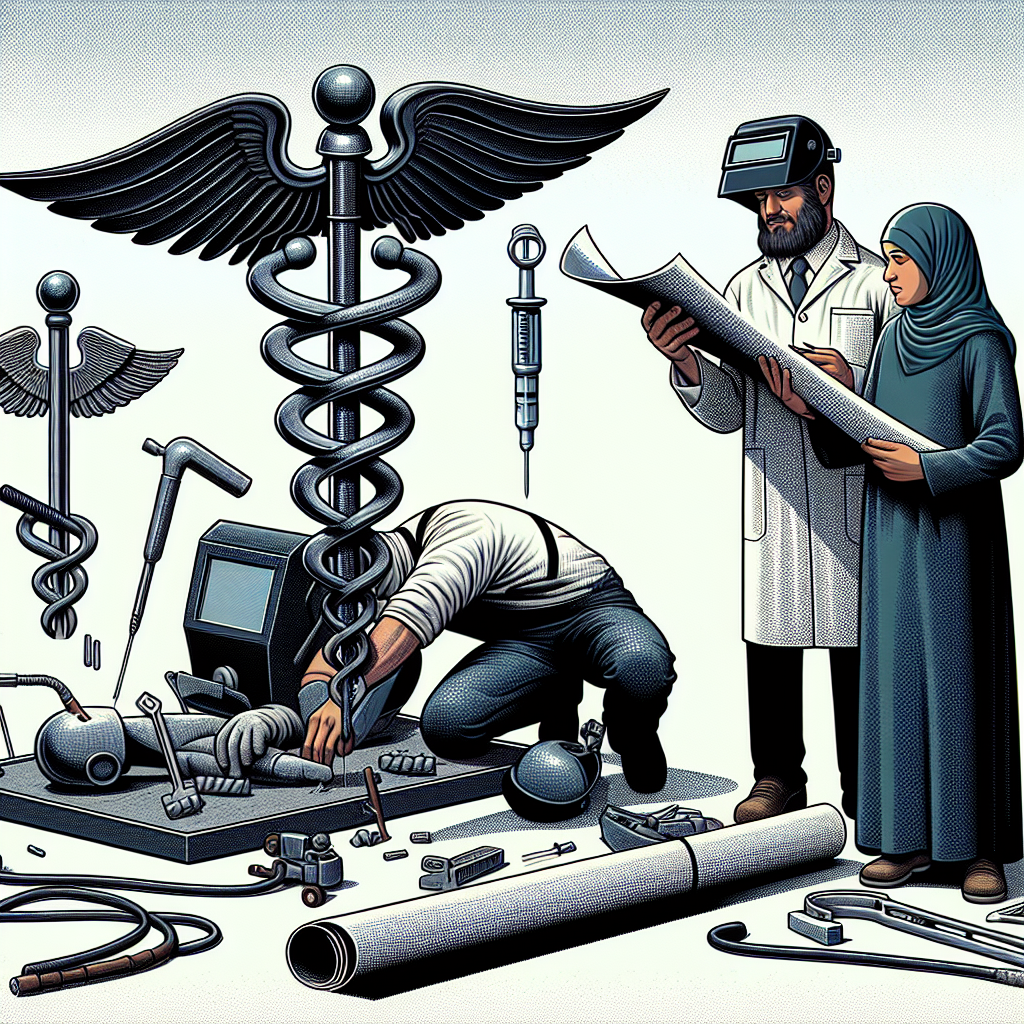Filed under Health Insurance on
Do Welders Receive Health Insurance Benefits?

Welding is a crucial trade that plays an integral role in the construction, manufacturing, and infrastructure sectors. While welders are vital in shaping many facets of the modern world, a common question concerns whether they receive health insurance benefits. Health insurance is a critical consideration for anyone in a physically demanding job due to potential occupational hazards. This article aims to explore the various scenarios in which welders may or may not receive health insurance benefits, alongside practical advice and real-life examples.
Understanding the Welding Profession
Welding is the process of joining metals through high heat application, which allows the materials to fuse. This trade requires precision, skill, and an understanding of safety protocols, given the risks involved in handling heavy machinery, high temperatures, and potentially harmful materials. The work environment can vary widely, ranging from construction sites to shipyards, each posing unique challenges and health risks.
Do Welders Receive Health Insurance Benefits?
The provision of health insurance benefits to welders is influenced by several factors, including employment status, the size and structure of the employer, and union representation.
Employment Status and Insurance Benefits
Welders can find employment in various ways – as full-time employees, part-time workers, independent contractors, or through labor unions. Typically, full-time welders employed by large companies have access to comprehensive benefits packages, which often include health insurance. However, independent contractors or part-time welders might not have the same level of benefits, as smaller firms might not provide coverage.
Unionized Welders
Union membership can significantly influence whether welders receive health insurance benefits. Unions often negotiate on behalf of workers to secure comprehensive benefits packages, including health insurance. For example, the United Association of Journeymen and Apprentices of the Plumbing and Pipe Fitting Industry (often simply known as the UA) offers its members various benefits, including healthcare plans.
By being part of a union, welders not only benefit from collective bargaining for better wages and safer working conditions, but they also have greater access to health insurance due to negotiated employer contributions.
Large vs. Small Employers
Large companies generally offer more extensive benefits to their employees. Firms like Caterpillar Inc., a global leader in construction machinery, typically provide health insurance and other benefits for their welders. In contrast, smaller businesses or startups may not have the resources to offer comparable benefits, impacting the availability of health insurance for their welding employees.
Real-Life Examples and Practical Advice
Understanding real-life examples and receiving practical advice can be invaluable for welders navigating their health insurance options.
- A welder employed by a large manufacturing firm shared that they receive a comprehensive health insurance package, which includes dental and vision alongside medical coverage. The stability offered by this coverage allowed peace of mind, knowing that medical expenses were covered in case of an accident or health issue.
- Conversely, an independent contractor mentioned the challenges faced without employer-provided health insurance. They opted to purchase a private insurance plan, which resulted in higher personal expenses. Their advice is to negotiate rates collaboratively when possible, perhaps forming groups with other contractors to reduce costs.
- Another welder working through a union spoke highly of the benefits offered through collective bargaining. This system allowed them to focus on their work without constantly worrying about unexpected medical expenses.
Tips for Welders Seeking Health Insurance
For welders without direct access to employer-provided health insurance, here are actionable tips to consider:
- Explore Union Membership: Join a trade union, if available, to benefit from negotiated health insurance plans.
- Research Employers: Before accepting a job, inquire about the benefits package and what it covers in terms of health insurance.
- Assess Private Insurance Options: Investigate various private health insurance plans that cater specifically to high-risk professions like welding.
- Utilize Health Insurance Marketplaces: Take advantage of health insurance marketplaces, which can provide affordable options for unattached workers or contractors.
- Consider Group Plans: If possible, join a group plan with other welders or related professionals to negotiate better rates and coverage.
Frequently Asked Questions
What factors determine whether a welder receives health insurance?
The key factors include the welder's employment status (full-time, part-time, or contract), employer size and policy, and union membership. Generally, full-time employees at large companies or members of a union are more likely to receive health insurance benefits.
What are some common health risks welders face that underscore the importance of health insurance?
Welders face multiple health risks including exposure to toxic fumes, eye damage from bright lights, burns from hot metals, and musculoskeletal injuries from physical demands. Health insurance is crucial for covering medical treatments and safeguarding financial stability in the event of work-related injuries.
Can independent contractor welders get health insurance?
Yes, independent contractors can acquire health insurance by purchasing private plans or exploring options through health insurance marketplaces. However, these options may be more costly compared to employer-provided benefits.
How does union membership impact a welder’s health insurance benefits?
Union membership often enhances access to health insurance by leveraging collective bargaining to secure employer contributions toward comprehensive health plans, thus providing welded workers with better standards of care.
Are there governmental resources available to help welders acquire health insurance?
Yes, certain government initiatives and subsidies are available for low-income individuals through the Affordable Care Act (ACA), helping welders without employer-provided insurance find more affordable healthcare options via insurance exchanges.
In conclusion, while health insurance for welders varies widely based on employment and organizational policies, there are numerous resources and strategies available to ensure coverage is accessible. By understanding individual circumstances and proactively exploring available options, welders can secure the health benefits essential to supporting their demanding and essential profession.





